Search
Search Results
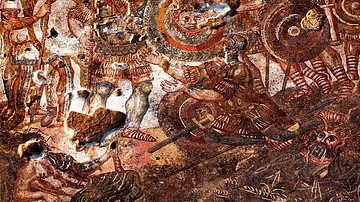
Definition
Perdiccas
Perdiccas (d. 321 BCE) was one of Alexander the Great's commanders, and after his death, custodian of the treasury, regent over Philip III and Alexander IV, and commander of the royal army. When Alexander the Great crossed the Hellespont...
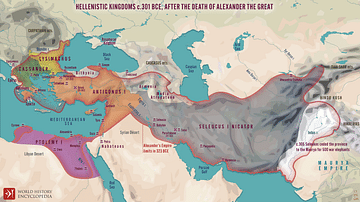
Definition
Wars of the Diadochi
On June 10, 323 BCE Alexander the Great died in Babylon. Although historians have debated the exact cause most agree that the empire he built was left without adequate leadership for there was no clear successor or heir. The military commanders...
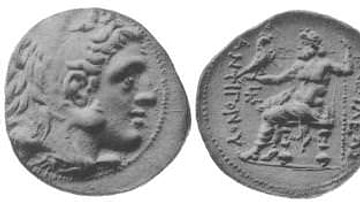
Definition
Antigonus I
Antigonus I Monophthalmus ("the One-Eyed") (382 -301 BCE) was one of the successor kings to Alexander the Great, controlling Macedonia and Greece. When Alexander the Great died in 323 BCE, a conflict known as the Wars of the Diadochi ensued...
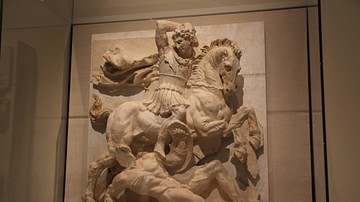
Definition
Hellenistic Warfare
When Alexander the Great died in 323 BCE, he left behind an empire devoid of leadership. Without a named successor or heir, the old commanders simply divided the kingdom among themselves. For the next three decades, they fought a lengthy...
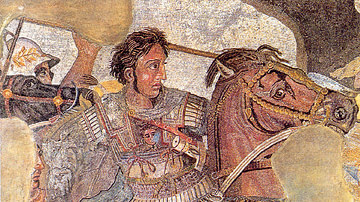
Definition
Alexander the Great
Alexander III of Macedon, better known as Alexander the Great (l. 21 July 356 BCE – 10 or 11 June 323 BCE, r. 336-323 BCE), was the son of King Philip II of Macedon (r. 359-336 BCE) who became king upon his father's death in 336 BCE and then...
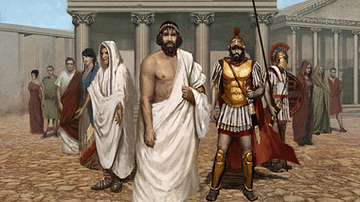
Definition
Antipater (Macedonian General)
Antipater (c. 399-319 BCE) was a Macedonian statesman and loyal lieutenant of both Alexander the Great and his father Philip II of Macedon. As a regent in Alexander's absence, Antipater subdued rebellions and mollified uprisings, proving...
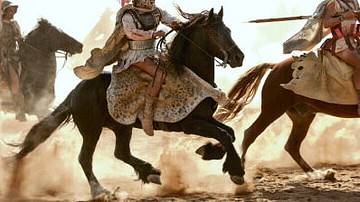
Article
The Army of Alexander the Great
No military commander in history has ever won a battle by himself. To be successful he needs the support of a well-trained army who will follow him regardless of the cost whether it be a stunning victory or hopeless defeat. One need only...
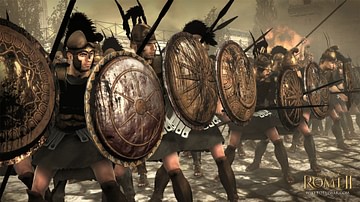
Article
The Greek Phalanx
One of the most effective and enduring military formations in ancient warfare was that of the Greek phalanx. The age of the phalanx may be traced back to Sumeria in the 25th century BCE, through Egypt, and finally appearing in Greek literature...

Article
Alexander the Great: A Case Study in Martial Leadership
History is not predictable; in many ways it can take on a life of its own. But sometimes, an individual's sheer presence is enough to bend history to his will. One such individual was Alexander the Great. Through his conviction, vision, mental...
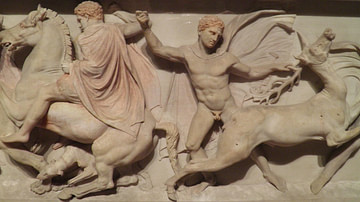
Definition
Argead Dynasty
The Argead dynasty, the ancient Macedonian house of Dorian Greek origin, lasted from the 7th century to 310 BCE. The mythological founder of the dynasty was King Caranus but it was under Philip II of Macedon (382-226 BCE) that the Macedonian...